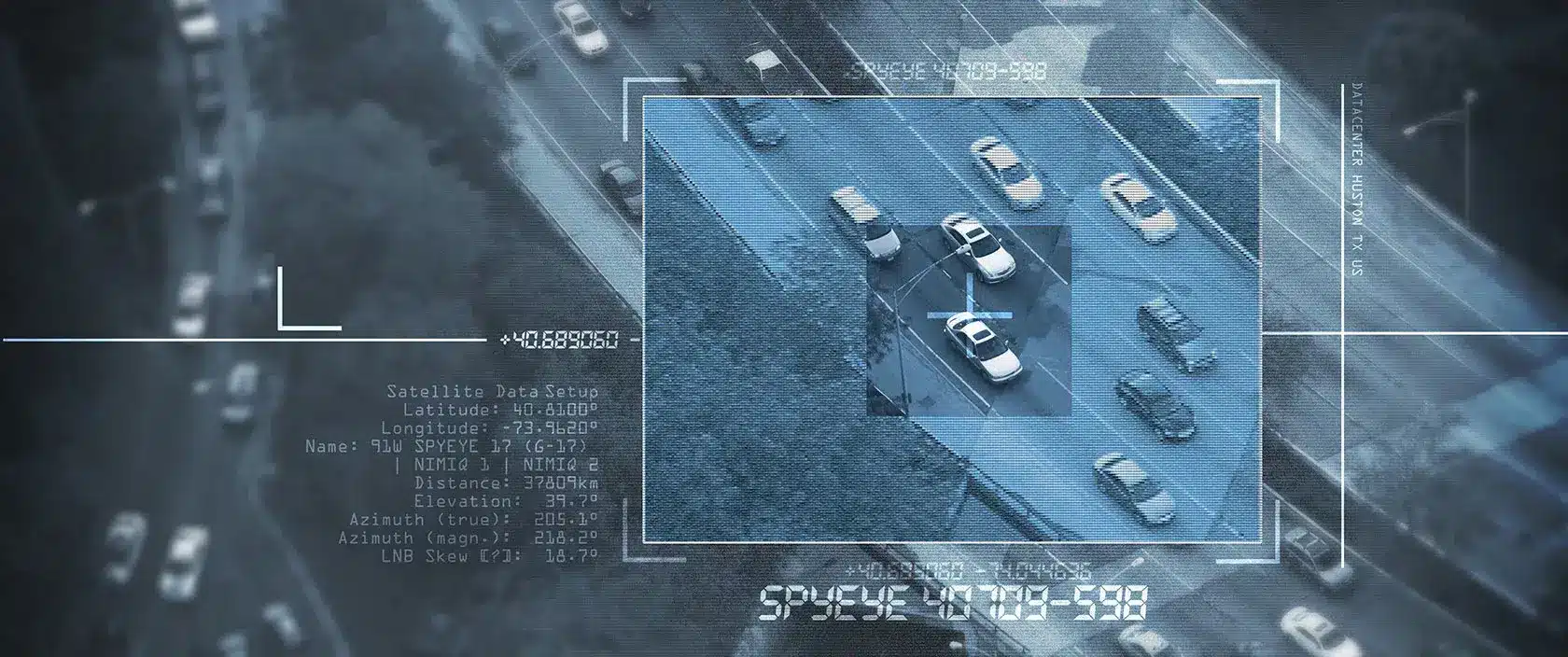Dealerships face a bevy of challenges today. Owners and managers of dealerships constantly seek ways to protect their business, save money, and take care of their customers and employees.
They need to find ways to protect their million-dollar vehicle inventory. Thieves like to target dealerships to steal tires, auto parts, or the entire vehicle. They must do all this and invest in dealership security with a tight budget.
Unlike other retailers, dealerships have a different kind of challenge with their inventory. They cannot bring it all inside and lock it up. The vehicles must stay outside, which tempts criminals to stir trouble. Here’s a deeper look into four of the biggest dealership security problems and how they can be solved.
1. Theft
In addition to inventory being out in the open, the other trouble with car lots is that they contain many hiding spots. There’s no fixing this because it’s the inventory that gives thieves a place to conceal themselves. Thieves can roll under a car to avoid being spotted. They can slip between vehicles.
The National Highway Traffic Safety Administration
reports that thieves steal a vehicle every 41 seconds. Almost half of the stolen vehicles are never recovered. The good news is that property crimes decreased a bit in 2018. The bad news is that it decreased for all property crimes except motor vehicle theft. The FBI’s 2018 Uniform Crime Report shows motor vehicle theft is up for the third year in a row.
Instead of stealing the whole vehicles, many thieves go for something easier and faster like tires and car parts. For instance, National Insurance Crime Bureau says the most stolen model in 2017 was the Toyota Camry. Its most commonly replaced parts are worth almost $11,000!
2. Vandalism
Dealerships often pay a far higher price for vandalism than the price to repair the damage. Cleanup requires blocking off areas from the public. When customers see the damage and roped-off areas, they may opt for another dealership where they feel safer.
Vandals did more than half a million dollars’ worth of damage in vandalizing a Seattle car dealership. A Detroit dealership saw 300 windows smashed on 55 cars with the damage from the broken windows alone costing $80,000. Four juveniles also caused almost $1 million in damages at a Houston dealership. They broke into vehicles and treated them like bumper cars by smashing them into more than 20 other cars.
Insurance isn’t going to pay out that kind of money quickly. Meanwhile, the business needs to clean up the damage ASAP or risk losing customers to competitors.
3. Fraud or False Claims
This type of scenario affects many dealerships. A customer brings a car in for service. When picking up the car, the customer points out damage, claiming the dealership caused it. Sure, the dealership can let the lawyers handle it, but it becomes a situation of the dealership’s word against the customer’s. It is very hard to prove false claims. Dealerships can easily fight this with the right security technology.
Even if the insurance company supports a dealership in a claim, it can take a long time before the money comes in. That’s why dealerships take steps to reduce liability.
4. Security Guards
Since most vehicles can’t be locked up inside, many dealerships use a security guard service. However, that can be expensive, easily costing six figures a month. It’s may not be the best way to maximize your security investment. They can’t be everywhere on the property at the same time and many don’t receive adequate training. The lack of training may not reveal itself until they catch something suspicious. Is that a risk you’re willing to take?
If a crime takes place while the security guards patrol a different area of the property, they won’t respond quickly enough because they won’t know there’s a crime in progress. Also, they can’t record the criminal activity to use for evidence. If they have phones on them, they are unlikely to think about taking them out to record the scene when they must consider their own safety.
One solution can help solve these problems while providing more benefits. That’s live video monitoring for dealerships. It maximizes your security investment for a fraction of the cost to hire security guards.
Benefit of Remote Video Monitoring for Dealerships
When you implement remote video surveillance, you gain many advantages. The benefits depend on the options you implement. The most effective one includes an objective, trained third party watching the entire property on monitors.
If someone breaks through the perimeter, high-definition cameras and recorders can capture everything to get the needed identifying information. That’s not all. Here are seven more benefits.
1. Deter theft
Live video surveillance can deter crime. The process involves placing cameras in strategic locations around the dealership and having a trained operator watching them. As soon as the operator spots something, he or she takes action. That may be using the audio speaker to warn the suspect on the property or calling the police and staying on the line for as long as they need it.
This dealership video shows how video monitoring stopped a car thief. In this scenario, the car did not go anywhere, and the business incurred no damages. This one shows how a speaker deters a trespasser.
Unfortunately, employees are often responsible for the theft. They know how the security system works and how to get around it. Here’s a video that shows a dealership employee stealing car parts. Tell employees about video monitoring. This will decrease the likelihood of their committing a crime while reassuring their safety. (See No. 5.)
2. Reduce False Claims and Liability
Dealerships get many false claims especially when customers bring in their cars for service. Video surveillance can help prove the vehicle already had damage before the service team gets their hands on it. A dealership avoids a liability claim as the video captures damage to a customer’s car as it arrives on the lot.
Incidents like these are hard to prove without video. Most of the time, someone will review past footage to pull up these incidences. Stealth has the people, processes, and technology to find a needle in a haystack or a small ding.
3. Lower Insurance Premiums
Video surveillance can protect liability and save on insurance premiums because it can help reduce your company’s risk of becoming a victim of crime. Using video security technology shows your insurance provider that you’ve taken steps to protect your business and deter crime. It can make your business less of a liability. If you work with a security company, ask if they can help work with your insurance provider to cut your premiums. Stealth has helped many clients with the insurance process.
It also backs your claims that your business followed safety protocols. If there’s a lawsuit, video recordings give you the evidence you need to increase your chances of winning.
4. Cut Costs
In addition to shaving insurance premiums, you can save on costs. Video monitoring costs up to 60 percent less than security guards. You just pay for the technology and then a monthly monitoring fee. Between the hardware and the monitoring, you’ll often see an ROI within four months.
Besides, security guards can be a liability. Unlike guards, video monitoring lowers liability and there are court cases that support this claim. Video surveillance can do much more than most traditional security options as you’ll see in the rest of these benefits.
5. Help Employees and Customers Feel Safer
Just like cameras can scare away prospective criminals, they also reassure employees and customers. When they see the cameras posted, they tend to feel safer on your property. That’s why the monitoring part of the equation is important.
If customers see cameras and no one is watching them, then they’ll have a false sense of security. This could become a problem if something happens to the customer. You may not need 24/7 monitoring. Talk to your security consultant about your requirements and business to get the right solution.
6. Increase Productivity
Here’s an advantage of using video monitoring that you won’t get with other security solutions. Stealth has helped clients increase their employees’ productivity. Management works with the trained operators to determine how customers and salespeople move around the lot. The video can identify gaps and management can close them. Are customers waiting too long for a salesperson? You can get your answer with video monitoring. It can also improve service and operations.
Security systems can incorporate intelligent video analytics technology to track customer movements and habits. You’ll learn which cars customers look at and which they buy. This information improves inventory management and supports marketing efforts.
7. Enhance Security with Integration
As security technology advances, so will the possibilities of an integrated security system. It allows you to increase efficiencies and advance your customer service. Integrated security combines some or all the following:
- Video monitoring
- Timekeeping
- Video review and analysis
- Access Control
- Audio warning speaker
- License plate recognition
For example, employees swipe their badges when they enter the dealership. The ID badge not only gives them access to the building with access control but also works with a timekeeping system to track their hours.
Investing in Remote Video Surveillance for Dealerships
Before adding video monitoring, establish a baseline of everything including crimes, customer traffic, and customer service. A baseline will give you the information you need to see how well your video surveillance works.
Every industry has unique security requirements including automotive. Stealth can design an effective security solution for your dealership. You can save more money than with other security solutions.
In short, dealerships can fall victim to damage, theft, fraud, and other risks. Stealth creates customized security dealership solutions to help protect your assets as well as provide valuable insights to management.
Learn more about automotive dealership security by getting your free complete guide to securing your dealership. Please feel free to contact us
with your questions.




